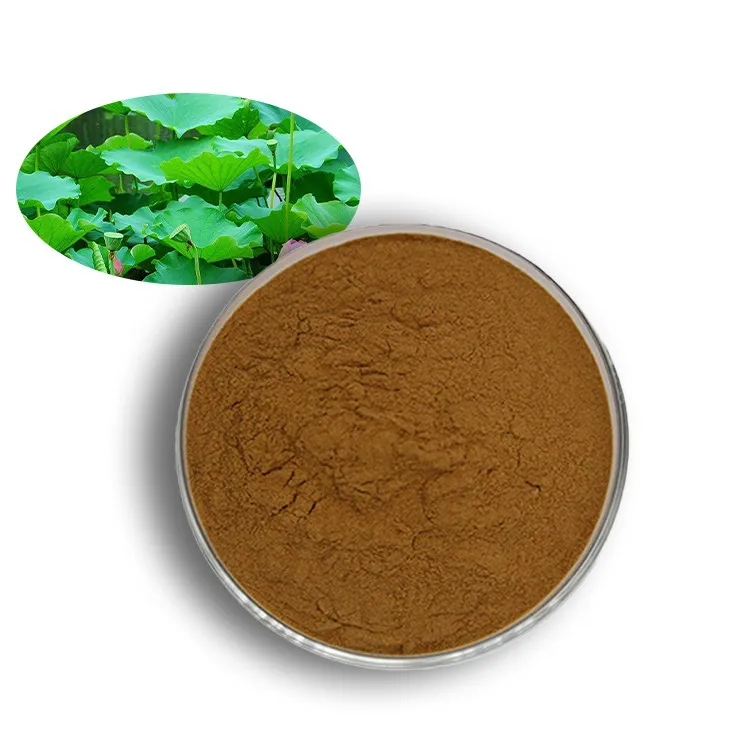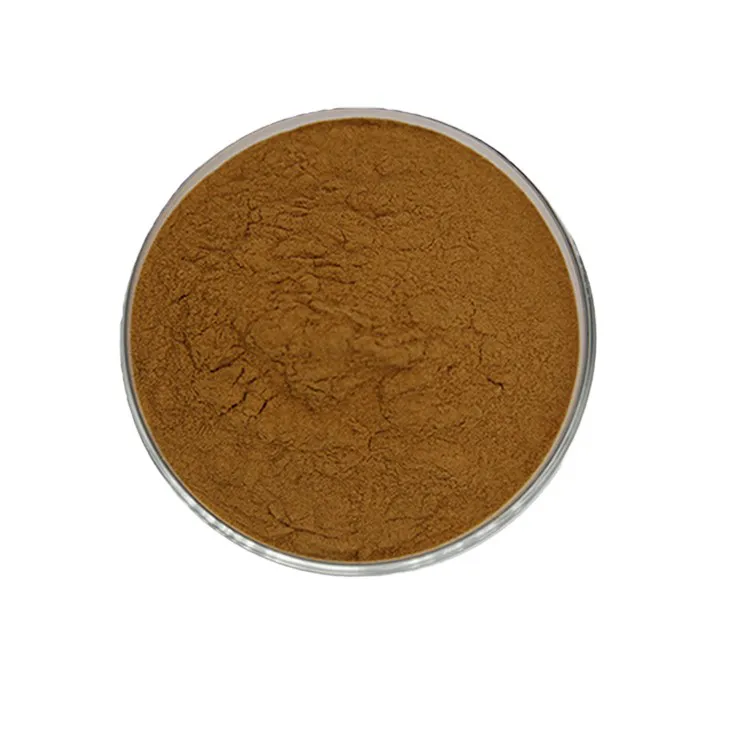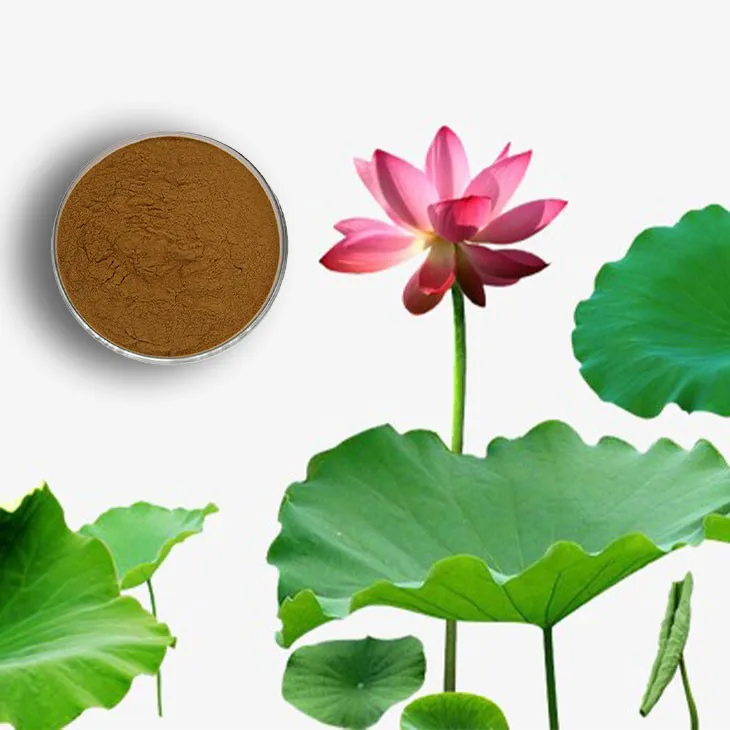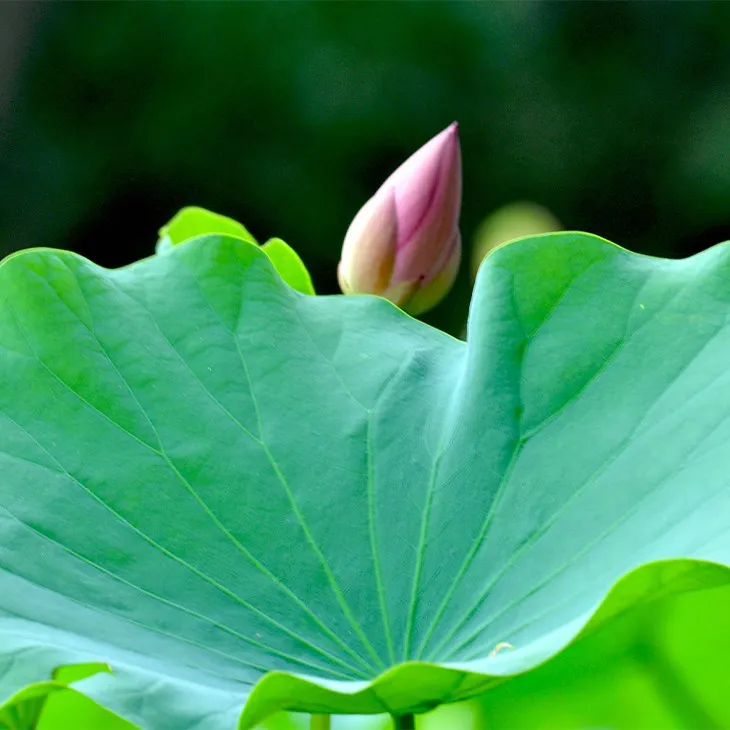- 0086-571-85302990
- sales@greenskybio.com
Lotus Leaf Extract: Should You Use It for Skin Care?
2024-11-13

Introduction
In the world of skin care, the search for effective and natural ingredients is an ongoing pursuit. One such ingredient that has been garnering attention is Lotus leaf extract. Lotus leaves, which are an integral part of the lotus plant, are known for their unique properties. The lotus plant has long been revered in many cultures for its beauty and purity, and now its leaves are being explored for their potential benefits in skin care.

Bioactive Compounds in Lotus leaf extract
Lotus leaf extract is rich in a variety of bioactive compounds. These include flavonoids, alkaloids, and phenolic acids. Flavonoids are known for their antioxidant properties. They can help to neutralize free radicals in the skin, which are often responsible for premature aging, such as the formation of wrinkles and fine lines. Antioxidants also play a crucial role in protecting the skin from environmental stressors like pollution and UV radiation.
Alkaloids present in lotus leaf extract may have anti - inflammatory effects. Inflammation in the skin can lead to various problems, including redness, irritation, and acne. By reducing inflammation, the lotus leaf extract can potentially improve the overall health and appearance of the skin.
Phenolic acids contribute to the antibacterial qualities of lotus leaf extract. This is an important aspect of skin care as bacteria on the skin can cause infections and breakouts. The antibacterial properties can help to keep the skin clean and free from harmful bacteria.

Benefits for Skin Hydration
One of the significant benefits of lotus leaf extract for skin care is its potential to improve skin hydration. The extract may help the skin to retain moisture. This is achieved through its interaction with the skin's natural barrier function. The skin's barrier is responsible for preventing water loss from the skin. When this barrier is compromised, the skin can become dry and dehydrated.
Lotus leaf extract can strengthen the skin's barrier by enhancing the production of ceramides and lipids in the skin. Ceramides are essential components of the skin's barrier and help to hold the skin cells together. By increasing the levels of ceramides, the lotus leaf extract helps to seal in moisture, leaving the skin feeling soft and supple.
Moreover, the humectant properties of lotus leaf extract also play a role in skin hydration. Humectants attract water molecules and hold them in the skin. This helps to keep the skin hydrated for a longer period of time, reducing the appearance of dry patches and flakiness.

Antibacterial Qualities and Skin Health
As mentioned earlier, the antibacterial qualities of lotus leaf extract are a valuable asset in skin care. The skin is constantly exposed to various bacteria, some of which can be pathogenic. These bacteria can colonize on the skin and cause problems such as acne, folliculitis, and other skin infections.
The phenolic acids in lotus leaf extract can disrupt the cell walls of bacteria, thereby killing or inhibiting their growth. This antibacterial action helps to keep the skin microbiome in balance. A balanced skin microbiome is essential for healthy skin as it helps to protect the skin from harmful invaders and also promotes proper skin function.
By using skin care products containing lotus leaf extract, individuals may experience a reduction in the frequency and severity of acne breakouts. The extract can target the bacteria that are often associated with acne, such as Propionibacterium acnes, without causing harsh side effects like some synthetic antibacterial agents.

Effectiveness of Lotus Leaf Extract in Skin Care
There have been several studies and research efforts aimed at determining the effectiveness of lotus leaf extract in skin care. While more research is still needed, the initial findings are promising.
In vitro studies have shown that lotus leaf extract can exhibit strong antioxidant activity. These studies involve testing the extract in a laboratory setting, usually in test tubes or Petri dishes. The results indicate that the extract can effectively scavenge free radicals, which is a positive sign for its potential anti - aging benefits.
Some in vivo studies, which are conducted on living organisms (usually animals or humans), have also shown positive results. For example, in a small - scale human trial, participants who used a skin care product containing lotus leaf extract reported an improvement in skin hydration and a reduction in skin redness over a period of several weeks.
However, it is important to note that the effectiveness of lotus leaf extract can vary depending on factors such as the concentration of the extract in the product, the formulation of the product, and the individual's skin type and condition.
Comparison with Other Natural Extracts
1. Aloe Vera
Aloe vera is a well - known natural ingredient in skin care. It is renowned for its soothing and moisturizing properties. Like lotus leaf extract, aloe vera can also help to hydrate the skin. However, aloe vera is more commonly associated with treating sunburns and skin irritations. In contrast, lotus leaf extract has a stronger antibacterial aspect, which makes it more suitable for those with acne - prone skin.
2. Green Tea Extract
Green Tea Extract is another popular natural extract in skin care. It is rich in antioxidants, particularly catechins. Green Tea Extract and lotus leaf extract both have antioxidant properties, but they differ in their chemical composition. Green tea extract may be more effective in reducing inflammation associated with UV damage, while lotus leaf extract may be better at maintaining skin hydration and combating bacterial infections.
3. Rosehip Oil
Rosehip oil is known for its ability to regenerate skin cells and reduce the appearance of scars. It is rich in essential fatty acids and vitamins. While lotus leaf extract focuses more on hydration and antibacterial action, rosehip oil is more targeted towards skin repair and rejuvenation. However, they can potentially be used together in a skin care routine for comprehensive skin benefits.
Factors to Consider: Sourcing and Quality
When considering using lotus leaf extract in skin care, it is crucial to take into account the sourcing and quality of the extract.
Sourcing:
- The lotus plants should be sourced from clean and unpolluted environments. Lotus plants grown in polluted water may contain contaminants that can be harmful to the skin. Ideally, lotus leaves should be sourced from organic farms where pesticides and other chemicals are not used.
- The geographical origin of the lotus plants can also affect the quality of the extract. Different regions may have different soil and climate conditions, which can influence the composition of the bioactive compounds in the lotus leaves.
Quality:
- The extraction method used to obtain the lotus leaf extract is of great importance. High - quality extraction methods should be used to preserve the bioactive compounds in the extract. Some extraction methods may use harsh chemicals or high temperatures, which can degrade the beneficial compounds in the lotus leaf.
- The purity of the extract should also be considered. A pure lotus leaf extract should not contain unnecessary additives or fillers that may reduce its effectiveness or cause skin irritation.
How to Incorporate Lotus Leaf Extract into Your Skin Care Routine
If you decide to incorporate lotus leaf extract into your skin care routine, there are several ways to do so.
1. Cleansers:
- Look for a facial cleanser that contains lotus leaf extract. Cleansers with this ingredient can help to remove dirt, oil, and bacteria from the skin while also providing some of the benefits of the extract, such as hydration and antibacterial protection.
2. Moisturizers:
- Many moisturizers now include lotus leaf extract. These moisturizers can help to keep the skin hydrated throughout the day. They are especially beneficial for those with dry or combination skin types.
3. Masks:
- Lotus leaf extract - containing masks can be used once or twice a week. These masks can provide an intensive treatment for the skin, delivering a high concentration of the extract to the skin for maximum benefit.
Conclusion
Lotus leaf extract shows great potential in skin care. Its bioactive compounds offer a range of benefits, including skin hydration improvement and antibacterial action. While it has shown promising results in various studies, more research is still needed to fully understand its effectiveness and potential side effects. When compared with other natural extracts, it has its own unique characteristics. However, when considering using lotus leaf extract, it is important to pay attention to sourcing and quality to ensure that you are getting a product that is safe and effective for your skin. By incorporating lotus leaf extract into your skin care routine in the appropriate ways, you may be able to enjoy the benefits it has to offer for your skin health.
FAQ:
What are the bioactive compounds in lotus leaf extract that are beneficial for skin care?
Lotus leaf extract contains various bioactive compounds such as flavonoids and alkaloids. Flavonoids have antioxidant properties which can protect the skin from free - radical damage. Alkaloids may contribute to its antibacterial qualities, helping to keep the skin clean and healthy.
How does lotus leaf extract improve skin hydration?
The compounds in lotus leaf extract might work by enhancing the skin's natural barrier function. This helps the skin to better retain moisture, thus improving skin hydration. However, the exact mechanism is still being studied.
Is lotus leaf extract better than other natural extracts for skin care?
It's not easy to simply say that lotus leaf extract is better. Different natural extracts have their own unique properties. For example, aloe vera is well - known for its soothing properties, while green tea extract has strong antioxidant effects. Lotus leaf extract has its advantages in terms of antibacterial and moisturizing for the skin, but the choice depends on individual skin needs and concerns.
What should be considered when sourcing lotus leaf extract for skin care?
When sourcing lotus leaf extract for skin care, one should consider factors like the origin of the lotus leaves. Leaves from clean and unpolluted water sources are preferable. Also, the extraction method matters. A proper extraction method should be used to ensure the bioactive compounds are effectively extracted without being damaged. And it should be from a reliable supplier who can guarantee the quality and purity of the extract.
Are there any potential side effects of using lotus leaf extract for skin care?
Generally, lotus leaf extract is considered safe for topical use in skin care. However, some people may be allergic to it. So, it's recommended to do a patch test on a small area of skin first. If any irritation or allergic reaction occurs, stop using it immediately.
Related literature
- The Role of Plant Extracts in Skin Care"
- "Bioactive Compounds from Natural Sources for Skin Health"
- "Lotus Leaf: A Potential Source for Skin - friendly Compounds"
- ▶ Hesperidin
- ▶ citrus bioflavonoids
- ▶ plant extract
- ▶ lycopene
- ▶ Diosmin
- ▶ Grape seed extract
- ▶ Sea buckthorn Juice Powder
- ▶ Beetroot powder
- ▶ Hops Extract
- ▶ Artichoke Extract
- ▶ Reishi mushroom extract
- ▶ Astaxanthin
- ▶ Green Tea Extract
- ▶ Curcumin Extract
- ▶ Horse Chestnut Extract
- ▶ Other Problems
- ▶ Boswellia Serrata Extract
- ▶ Resveratrol Extract
- ▶ Marigold Extract
- ▶ Grape Leaf Extract
- ▶ blog3
-
Cranberry Plants and Skin - care Products.
2024-11-13
-
Saw Palmetto Extract
2024-11-13
-
Carrageenan Extract Powder
2024-11-13
-
melatonin extract
2024-11-13
-
Quercetin
2024-11-13
-
Honeysuckle Pollen
2024-11-13
-
Purple Sweet Potato Extract
2024-11-13
-
Tongkat Ali Extract
2024-11-13
-
Peppermint Extract Powder
2024-11-13
-
Rosemary extract
2024-11-13
-
Cocoa Extract
2024-11-13





















